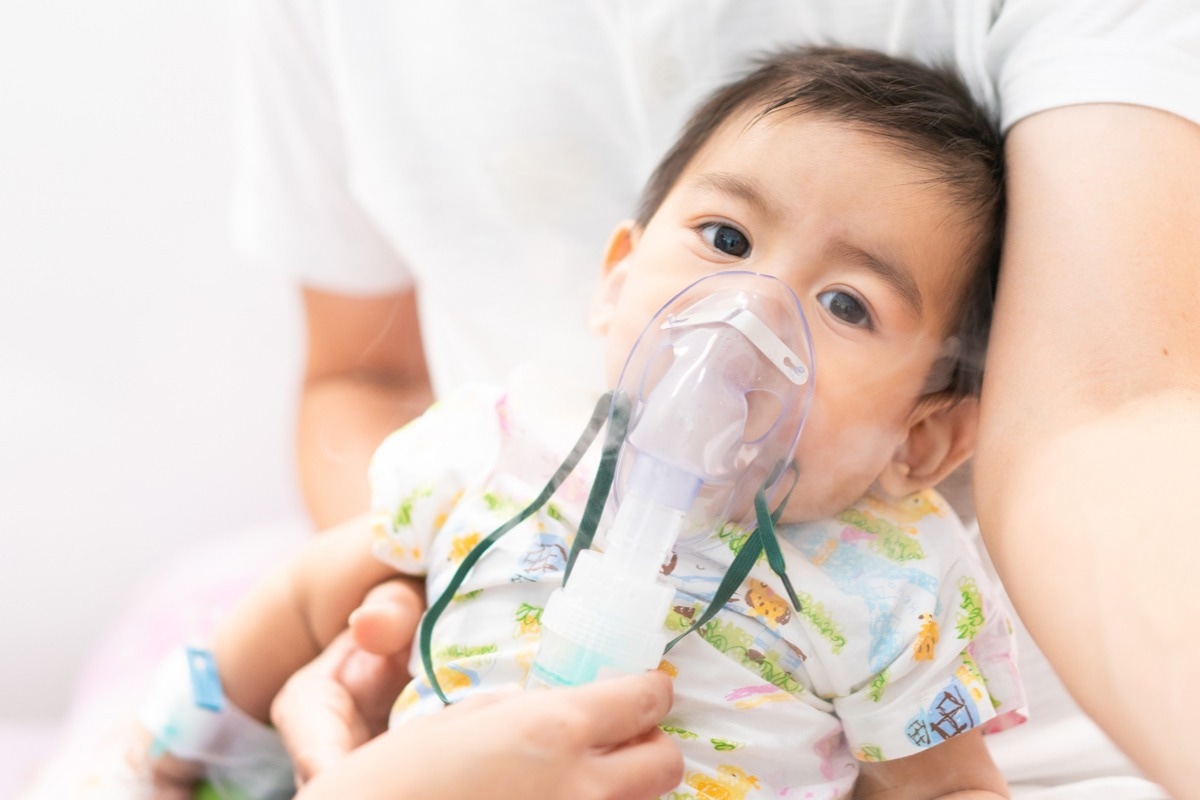In a recent study published in the Jama Network Open, researchers assessed whether croup infections among young children in the United States (US) were associated with the emergence of new severe acute respiratory syndrome coronavirus 2 (SARS-CoV-2) variants of concern (VOC) Omicron.
 Study: Analysis of COVID-19–Related Croup and SARS-CoV-2 Variant Predominance in the US. Image Credit: SUKJAI PHOTO/Shutterstock
Study: Analysis of COVID-19–Related Croup and SARS-CoV-2 Variant Predominance in the US. Image Credit: SUKJAI PHOTO/Shutterstock
Background
Although limited to small case series, previous studies have associated SARS-CoV-2 with upper airway infections (UAI), including laryngotracheobronchitis or croup in young children who have susceptible and relatively collapsible airways. Since Omicron replicates more efficiently in the human airways, it is important to investigate how its emergence in the US impacted the case incidence of croup among young children.
About the study
In the present cross-sectional study, authors enrolled three months-to-eight-year-old children diagnosed with croup and coronavirus disease 2019 (COVID-19) between January 1, 2021, and March 26, 2022. They used the pediatric health information system data from 43 pediatric hospitals across US states. Further, the researchers used the International Statistical Classification of Diseases and Related Health Problems, Tenth Revision (ICD-10) codes to classify test subjects based on disease diagnosis.
The team used the US Centers for Disease Control and Prevention (CDC) COVID data tracker to determine the SARS-CoV-2 VOC predominance period (the period when a VOC is responsible for over 50% of COVID-19 cases). The CDC data estimates SARS-CoV-2 VOC proportions using genomic surveillance accounting for longitudinal sampling at inter and intra-state levels.
The primary study outcome was incidences of COVID-19–related croup; secondary outcomes included assessing an association between the increase in hospital and intensive care unit (ICU) admissions and racemic epinephrine (RE) treatment among children and periods of dominance of SARS-CoV-2 VOCs. The team summarized croup incidences by week and variant predominance period.
Furthermore, the researchers deployed a mixed-effects logistic regression model to assess the association of the SARS-CoV-2 VOC predominance period with hospitalization/ICU admissions and RE use. The model adjusted for each participant’s age, gender, race/ethnicity, insurance status, and region.
Study findings
The researchers identified 5152 children with SARS-CoV-2–related croup with a median age of 17 months, of which 3329 were boys. The percentage of children with SARS-CoV-2–related croup was substantially higher during the wave of infections due to Omicron than the Alpha or Delta VOCs (10.9% vs. 41.% vs. 3.6%). However, the odds of hospitalization during the predominance periods of the Alpha, Delta, and Omicron VOCs were comparable with an adjusted odds ratio [aOR] of 1.28 for Alpha and 0.92 for Delta. Similarly, the RE use was less likely during the Delta-dominated period (aOR 0.73) and did not alter much during the Alpha-dominated period (aOR 1.03) compared to Omicron predominance time. Additionally, the rate of ICU admissions remained statistically similar across periods of dominance of various SARS-CoV-2 VOCs, which might be due to constraints on ICU capacity or less severe disease.
Conclusions
The current study expanded the evidence gathered by single-center studies; moreover, its results were consistent with another recent study that showed an increase in the percentage of young children having UAIs during COVID-19. These numbers increased from 1.4% during the pre-Omicron period to 4.1% during the Omicron period. The use of ICD-10 codes in the present study (rather than a positive SARS-CoV-2 test result) resulted in the observed increase in the hospitalization rate for SARS-CoV-2–related croup after the emergence of Omicron.
Further, the study demonstrated mixed results concerning COVID-19–related croup severity. The authors noted an increase in the proportion of children requiring RE during the Omicron and Alpha periods compared with the era of Delta's predominance. However, there was no difference in the average number of RE doses required.
As COVID-19 will become an endemic eventually, other viral infections, including croup, might cause a surge in patient volumes. Therefore, the authors emphasized the need for continuous monitoring of SARS-CoV-2 phenotypes and their relationship with the surge in patient volumes, especially across pediatric health systems.